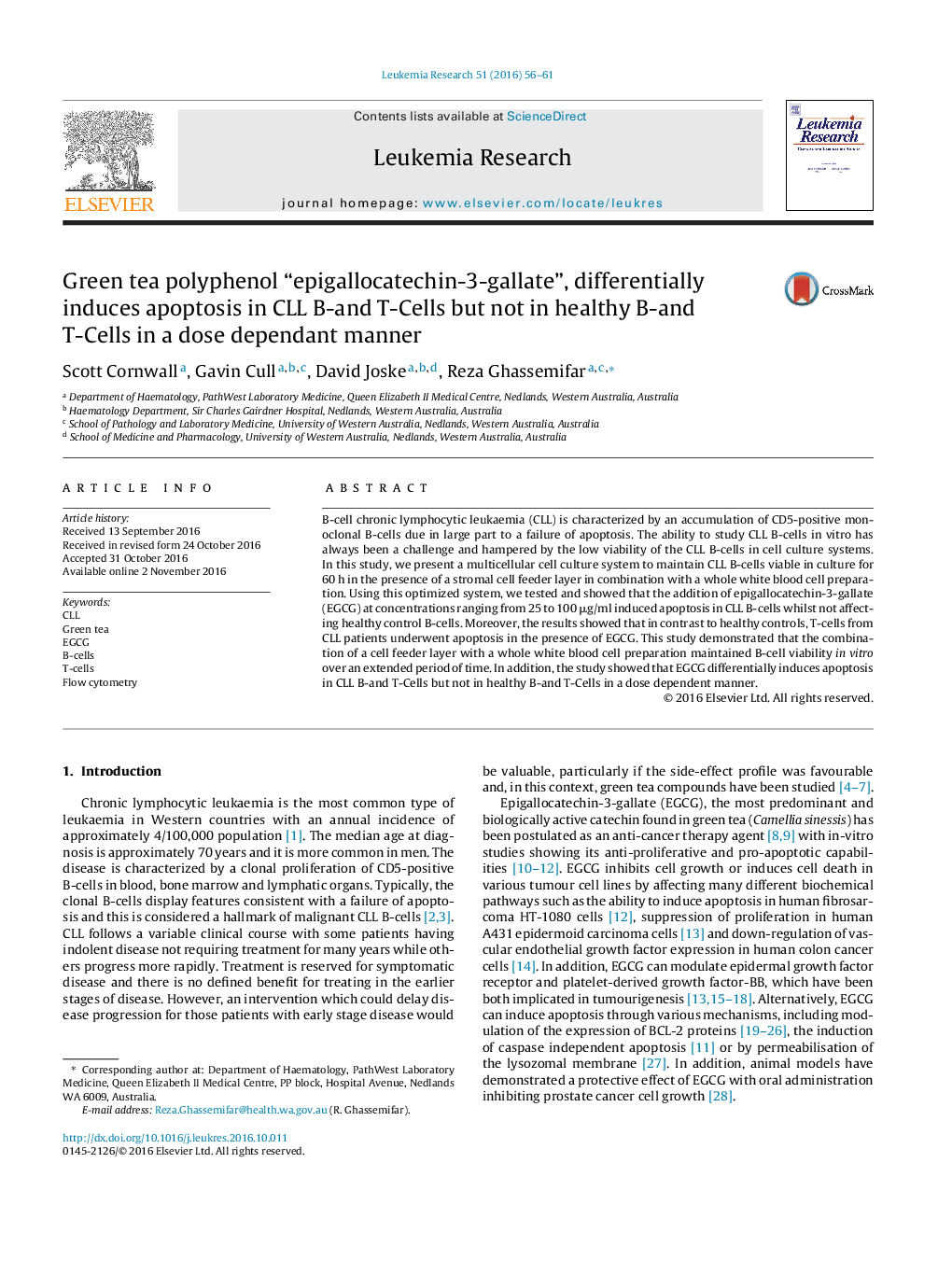| Article ID | Journal | Published Year | Pages | File Type |
|---|---|---|---|---|
| 5527838 | Leukemia Research | 2016 | 6 Pages |
â¢CLL B-cells longevity in vitro needs a cell feeder layer and other white blood cells.â¢EGCG selectively induces apoptosis in CLL Cells in a dose dependant manner.â¢EGCG selectively induces apoptosis in CLL B-cells but not in healthy B-Cells.â¢EGCG selectively induces apoptosis in CLL T-Cells but not in healthy T-Cells.
B-cell chronic lymphocytic leukaemia (CLL) is characterized by an accumulation of CD5-positive monoclonal B-cells due in large part to a failure of apoptosis. The ability to study CLL B-cells in vitro has always been a challenge and hampered by the low viability of the CLL B-cells in cell culture systems. In this study, we present a multicellular cell culture system to maintain CLL B-cells viable in culture for 60 h in the presence of a stromal cell feeder layer in combination with a whole white blood cell preparation. Using this optimized system, we tested and showed that the addition of epigallocatechin-3-gallate (EGCG) at concentrations ranging from 25 to 100 μg/ml induced apoptosis in CLL B-cells whilst not affecting healthy control B-cells. Moreover, the results showed that in contrast to healthy controls, T-cells from CLL patients underwent apoptosis in the presence of EGCG. This study demonstrated that the combination of a cell feeder layer with a whole white blood cell preparation maintained B-cell viability in vitro over an extended period of time. In addition, the study showed that EGCG differentially induces apoptosis in CLL B-and T-Cells but not in healthy B-and T-Cells in a dose dependent manner.
